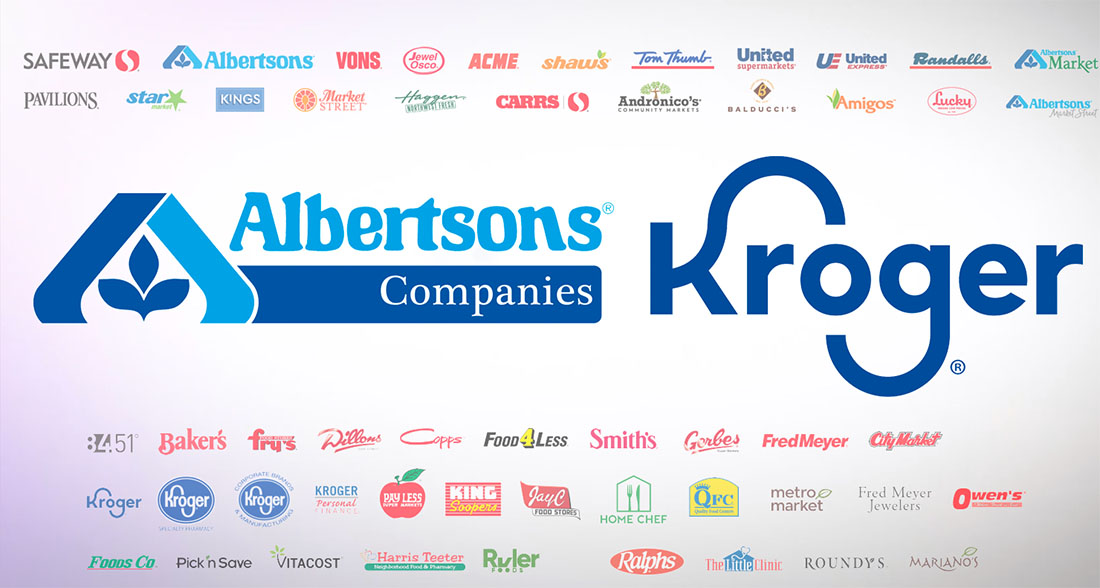Photo Credit: Getty Images
The highly anticipated $25 billion merger between grocery giants Albertsons and Kroger has officially collapsed. On December 11, Albertsons announced the termination of the deal, citing legal obstacles and accusing Kroger of breaching contractual obligations.
The failed merger, initially proposed in 2022, was set to combine the fifth and tenth largest retailers in the U.S., boasting ownership of prominent chains like Safeway, Harris Teeter, and Fred Meyer.
Albertsons CEO Vivek Sankaran expressed disappointment, stating, "We have made the difficult decision to terminate the merger agreement." The company filed a lawsuit against Kroger, alleging that its partner failed to secure regulatory approval by ignoring feedback from authorities and rejecting potential divestiture buyers.
The suit also seeks damages for the extensive costs and delays incurred during the two-year approval process.
The merger faced fierce resistance from unions, small grocery chains, and bipartisan political figures who warned of potential price hikes and diminished competition. A pivotal blow came from District Judge Adrienne Nelson, who ruled that the merger would stifle competition between Albertsons and Kroger while offering no substantial benefit to consumers.
Judge Nelson emphasized that traditional supermarkets play a distinct role in retail, separate from conglomerates like Walmart and Amazon.The Federal Trade Commission (FTC), led by outspoken merger skeptic Lina Khan, also filed a lawsuit to block the deal.
The agency argued that the merger would harm consumers, an assertion Albertsons and Kroger fiercely disputed. Both companies claimed their combined scale would lower prices and improve operational efficiency, though critics remained unconvinced.
Despite the fallout, investors appeared unfazed. Albertsons' stock rose following its announcement of a $2 billion share buyback plan, signaling confidence in its independent strategy.
Kroger also saw a boost in market performance, with CEO Rodney McMullen reassuring stakeholders of the company's resilience. "We've always ensured our success doesn't hinge on mergers," McMullen stated last week, underscoring Kroger's robust position as the largest U.S. grocery chain.
Albertsons, meanwhile, reaffirmed its commitment to innovation and growth. "Over the last two years, we have invested in our core business and new revenue streams," Sankaran added. The company plans to enhance its stores and adopt advanced technologies to remain competitive in a rapidly evolving industry.


